'A large part of this episode has come from my own life, the backlash I faced and my journey after having publicly claimed my identity.'

The episode everyone is talking about in Made In Heaven 2 has been directed by Neeraj Ghaywan.
Yes, it's the Radhika Apte wedding in the episode titled The Heart Skipped A Beat, where her character belongs to a lower caste and she goes on to have a Buddhist wedding.
It's a story taken from a page of Ghaywan's own life.
"The Buddhist wedding you see is how my sisters got married," Neeraj, who made the acclaimed film Masaan, tells Subhash K Jha, "But having said that, foregoing my last name 'Kumar', much like Pallavi Menke, is not just my story. It has been the story of thousands and lakhs of us, who took time to claim our real identities."
Congratulations on the massive impact of your episode The Heart Skipped A Beat in Made In Heaven 2. This episode must be very close to your heart.
Yes, because I put a lot of my personal life into it.
It was scary to put yourself out there for scrutiny.
The love the episode has received from over 200 countries is the catharsis I needed.
How did this opportunity to do something so relevant and personal come to you?
The writers, Zoya Akhtar, Reema Kagti and Alankrita Shrivastava wanted to pursue an inter-caste wedding, centered around an accomplished scholar still facing caste prejudice during her wedding.
When I met them, I ended up talking about my life journey the whole day.

Please share that journey with us.
Many years ago, when I asserted my caste identity publicly, it was reported in a leading newspaper.
My house help happened to see that and kept asking me why my picture is there.
It took me three whole days to find the courage to tell her.
She has worked with me for over a decade, and she said it doesn't matter to her.
This relieved me, so I spoke to my driver about it.
He said his parents are casteist, but he didn't believe in all this.
The small act of speaking even to your staff about your identity was so daunting.
How did your family react to your outing your caste identity?
The newspaper reached my parents too.
It took some time for them to be okay with it, more so because they were worried for me.
Some of my relatives had not publicly owned up to their caste identity out of fear and I inadvertently exposed them (and this helped build the brother's character).

All of this went into the episode My Heart Skipped A Beat in Made In Heaven 2?
Anecdotes like these helped the writers understand the complexity of caste assertion.
Some of my personal moments, like hiding my last name and masking with a caste-neutral name 'Kumar' for a large part of my life, the repercussions of my public caste expression, and the constant self-doubts were put into the episode's writing.
The Buddhist wedding you see is how my sisters got married.
Having said that, foregoing my last name 'Kumar', much like Pallavi Menke, is not just my story.
It has been the story of thousands and lakhs of us, who took time to claim our real identities.
We didn't have the courage to face the world like our fellow members, who have lived with harsher experiences because they had owned up to their identity.
While we lived in fear of being found, others took the hate head on.
In either case, it is a trauma that we all have lived.
The episode has left a deep impact.
Many people called me after watching the episode, sobbing and saying how 'seen', 'heard' and 'represented' they felt.
An IAS couple told me that it is their exact life story, sans the names and location.
They were so overwhelmed, they even invited me to their home to talk more about it.
Many people from around the world have reached out to me and spoken to me about their similar experiences.
Each of them is unique and at the same time, each of them follows the same beats of the larger narrative that is our reality.
Pallavi Menke is a sum of all those who came before me and those who live in this time, grappling with their caste expression.

Author Yashica Dutt claims you have borrowed her life in the episode.
A large part of this episode has come from my own life, the backlash I faced and my journey after having publicly claimed my identity.
One person claiming it solely is akin to erasing me from my own story.
And like I said, it is still not my story to claim.
It is a collective identity of all of us and our experiences.
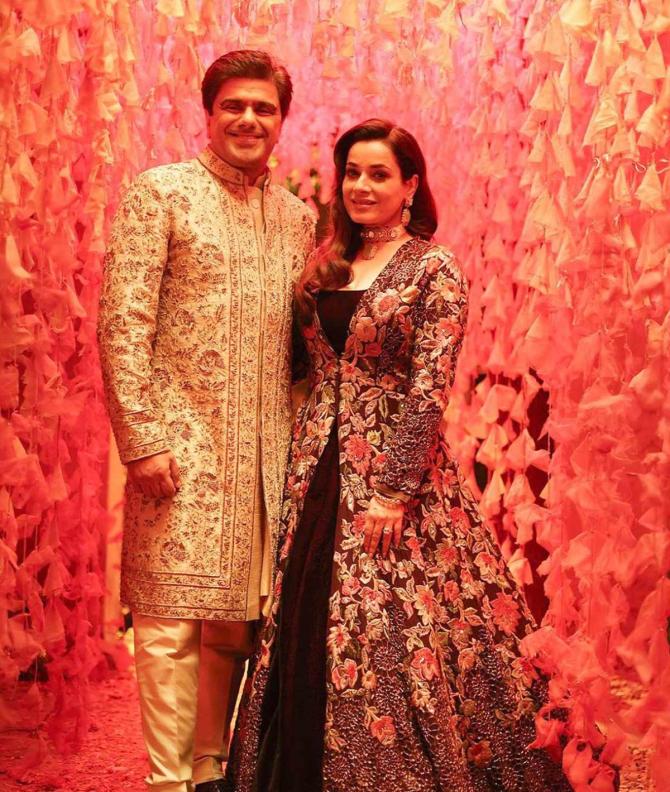
You have done another episode in Made In Heaven 2, which did not work for me. Casting a real-life couple as furtive lovers seemed a little hard to digest.
I am sorry it didn't work for you, but I am happy to see it has been loved by many.
We felt the real-life chemistry between Samir Soni and Neelam added to the depth of love that spanned decades and waiting for the rightful conclusion.
Truth is stranger than fiction.
This story was inspired by a newspaper article and needed someone like them to make this seemingly impossible real-life story credible.

10 Years, four short films, one feature film and eight episodes of another series. Why this low output from such an outstanding director?
I want to see more of me too.
I am trying hard to get to that ever-elusive second feature for many years now.
It's not the external pressure but more internal of what I want to say.
I am now charged to make my next feature film very soon.
How relevant is the OTT platform to an uncompromising film-maker like you?
It relieves you from the shackles of commercial cinema expectations and trappings.
You can be immersive and expansive with character arcs.
You can choose bolder and more experimental subjects.
Also, for a film-maker like me, it makes my work be seen in 200 countries in an instant.

What do you feel about the kind of films that are working in theatres these days?
I love the box office success of films in the Hindi film industry.
It's the new lease of life we all needed post-pandemic.
But I am a tad worried about the frenzy to include toxic masculinity in every film and that tentpole films are the only ones mostly working.
Hoping for a due course correction.
Tell us about your future plans. Is cinema your only chosen tool for social reform?
Honestly, I am a film-maker above all. I want to be able to tell different kinds of stories.
I don't set out to make films about social reform, but something that naturally comes to me because of my political being.
As Pallavi says, 'Everything is about the politics.'
I want my films to be powerful stories and I expect to be judged for my narrative craft apart from the pats on the back for the subjects I choose.
In cinema, the narrative is greater than its politics.





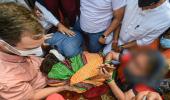



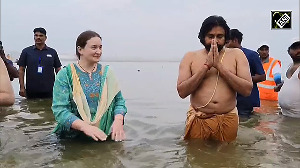
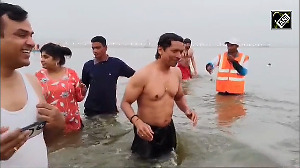
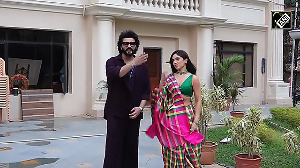
 © 2025
© 2025